Search Images
Browse Content (p. 1109)

Image
King Solomon and the Hoopoe
Collection of poems (divan), King Solomon and the hoopoe who brought news from Queen Sheba, Walters Manuscript W.636, fol. 84a An illustrated copy of the collection of poems (Dīvān) by Shams al-Dīn Muḥammad Ḥāfiz al-Shīrāzī who flourished...
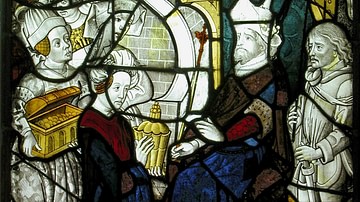
Image
Solomon Receiving the Queen of Sheba
Glass panel with Solomon Receiving the Queen of Sheba.
Franco-Netherlandish, 15th–16th century CE.
Metropolitan Museum of Art
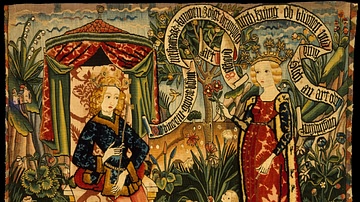
Image
Two Riddles of the Queen of Sheba
Linen warp, made in Strasbourg, Upper Rhineland, Germany, c. 1490–1500 CE.
Dimensions: 31 1/2 x 40 in. (80 x 101.6 cm)
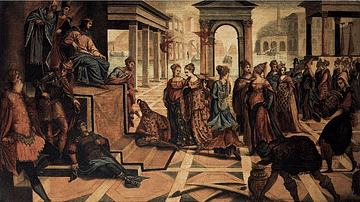
Image
Solomon and the Queen of Sheba
Tintoretto: Solomon and the Queen of Sheba
1545 CE, oil on canvas, Gallerie dell'Accademia, Venice
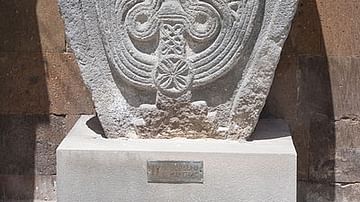
Image
Armenian Cross-stone, Vagharshapat
A memorial Armenian cross-stone or khachkar, Vagharshapat, Armenia. 10th century CE.
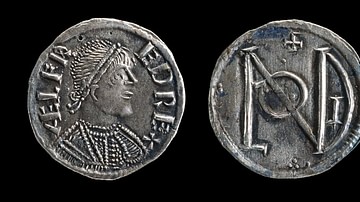
Image
Silver Penny of Alfred the Great
Silver penny of Alfred the Great (r. 871-899 CE), minted in Wessex.
British Museum, London
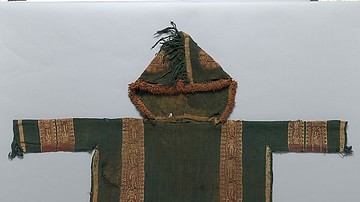
Image
Byzantine Child's Tunic with Hood
Child's woolen tunic, dyed in purple, red-brown, and green, with decorative fringes, from Egypt, c. 600-900.
Metropolitan Museum of Art, New York.
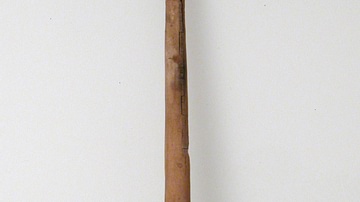
Image
Byzantine Coptic Spindle
Made in Byzantine Egypt between 580-640 CE, this wood and iron spindle measures 34.2 x 8.1 cm overall, with the whorl measuring 2.7 x 8.1 cm.
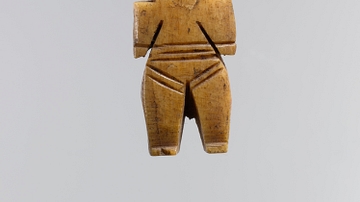
Image
Byzantine Bone Toy
This toy figure carved in bone dates to the 6th-9th century CE. Measures 60 x 26 x 7 mm. From an article by Alzahraa K. Ahmed, at https://www.metmuseum.org/exhibitions/listings/2012/byzantium-and-islam/blog/topical-essays/posts/family-and-children...
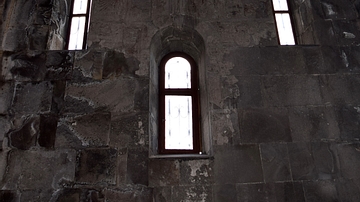
Image
Windows at Tatev Monastery
Medieval windows at Armenia's Tatev Monastery.